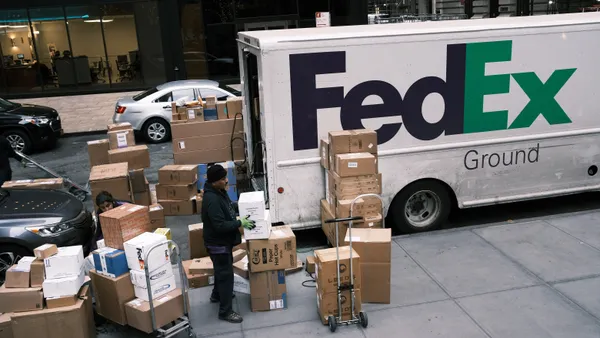Dive Brief:
- UPS announced August 16 it will not be applying additional peak surcharges for residential deliveries during the 2019 holiday season, which runs approximately October 1, 2019 through January 4, 2020.
- The carrier said it would leverage cost savings from its expanded air freight network and automated sortation "super hubs," passing it on to customers. Other peak delivery surcharges on large shipments and those requiring additional handling will remain intact, UPS said in a press release. More than 75% of UPS's parcel volume will pass through these automated facilities in peak 2019, said the carrier.
- The lack of surcharges will enable customers to better plan their holiday shipping needs, UPS chairman and CEO David Abney said in the release.
Dive Insight:
UPS had a "record-setting 2018 peak season in terms of both on-time delivery performance and operations execution," and expects the 2019 holiday season to be even larger, according to Abney.
After Amazon shook up the shipping game this year by shortening default Prime order delivery speeds from two days to one, UPS has rolled out seven-day-a-week service, new delivery options, an expansion of its air fleet and other measures to compete against the retailer and growing logistics giant. UPS' competitor FedEx has similarly upped its service offerings and recently decided not to renew its Express and Ground contracts with Amazon, seeking profitable e-commerce business elsewhere.
As the two major carriers vie for shipment shares going into peak season, it appears price could become another differentiator.
UPS applied a residential peak delivery surcharge in 2018 of $0.28 for ground and $0.99 for air shipments.
FedEx, on the other hand, did not apply a peak surcharge for residential deliveries during its holiday seasons from 2016 through 2018 and has yet to announce any residential peak surcharges for 2019.














